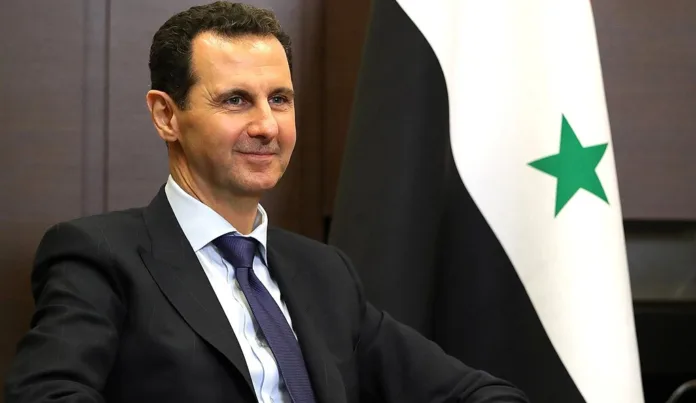Syria is undergoing a profound shift in its political landscape following the departure of long-standing President Bashar al-Assad. The arrival of a US delegation in Damascus marks a potential reconfiguration of diplomatic relations, suggesting a recalibration of strategies in the post-Assad context. These initial talks hint at a renewed openness to engaging with Syrian authorities, potentially signalling shifts in the long-standing isolation between Syria and Western powers.
Assad’s regime, which held power for decades, faced massive internal strife during the Syrian Civil War, resulting in significant international sanctions and condemnation. Despite these challenges, Assad managed to retain control over key regions with support from allies such as Russia and Iran. However, the power vacuum left by his exit presents a nuanced opportunity for both internal reform and international diplomatic engagement.
The geopolitical significance of Syria is undeniable, located as it is at the crossroads of several Middle Eastern divides. Its future trajectory impacts regional stability, influencing countries like Turkey, Iran, and Israel directly. The recent discussions involving a US-led delegation might indicate readiness on the part of Western countries to reassess earlier policies, seeking pathways to stabilization and reconstruction.
Complicating the geopolitical calculus, Syria remains embroiled in regional conflicts with significant humanitarian implications, including issues related to displaced populations and regional security threats. The extradition of a former US pilot accused of aiding the Chinese military adds another layer of complexity to international relations, reflecting broader global power dynamics.
The Syria Post-Assad Shift underscores the potential for re-engagement with the West, driven by multilateral diplomatic efforts that integrate reconstruction with peace-building initiatives. Central challenges include rebuilding national institutions and addressing war crimes stemming from the decade-long conflict. Regional players such as Saudi Arabia and Turkey are poised to play pivotal roles as Syria navigates reintegration into the international fold.
As international observers watch closely, Syria’s path forward involves balancing internal needs for democratic reforms with external pressures for security resolutions and rebuilding efforts. The global community’s role will be crucial in facilitating peaceful transitions, ensuring that geopolitical interests do not overshadow the urgent humanitarian needs that have plagued the region for years.
Embed from Getty ImagesPerspectives
Perspective 1: Middle East peace advocates and diplomatic experts, drawing from think tanks such as the Carnegie Middle East Center and the International Crisis Group, emphasize the need for comprehensive peace-building efforts in Syria. They advocate for inclusive dialogues that incorporate diverse Syrian factions, aiming to establish a stable political framework and address human rights abuses. These experts highlight the importance of international cooperation in humanitarian aid and reconstruction while ensuring that justice and accountability remain focal points.
Sources:
Carnegie
Crisis Group
Perspective 2: Security analysts, as featured in military publications such as The Defense Post and Jane’s Defence Weekly, interpret the US’s diplomatic overtures as strategic moves geared towards countering Iranian and Russian influence in Syria. They argue that the West’s engagement in Syria serves dual purposes: stabilizing the region while limiting the reach of rival powers. These analyses suggest that renewed diplomatic efforts could lead to a repositioning of US military and intelligence assets to better address regional security concerns.
Sources:
The Defense Post
JANES
Perspective 3: The Syria Post-Assad Shift highlights the critical role of Syrian diaspora communities and local NGOs in shaping the rebuilding process. Organizations like the Syria Justice and Accountability Centre emphasize the need to integrate local voices into peace-building and national reconstruction efforts. Grassroots involvement is considered vital for sustainable peace and reconciliation, with a focus on prioritizing local needs and perspectives. Advocates call for international frameworks that promote local autonomy and participatory governance as key components of this transformative period.
Sources:
Syria accountability
Relief Web
